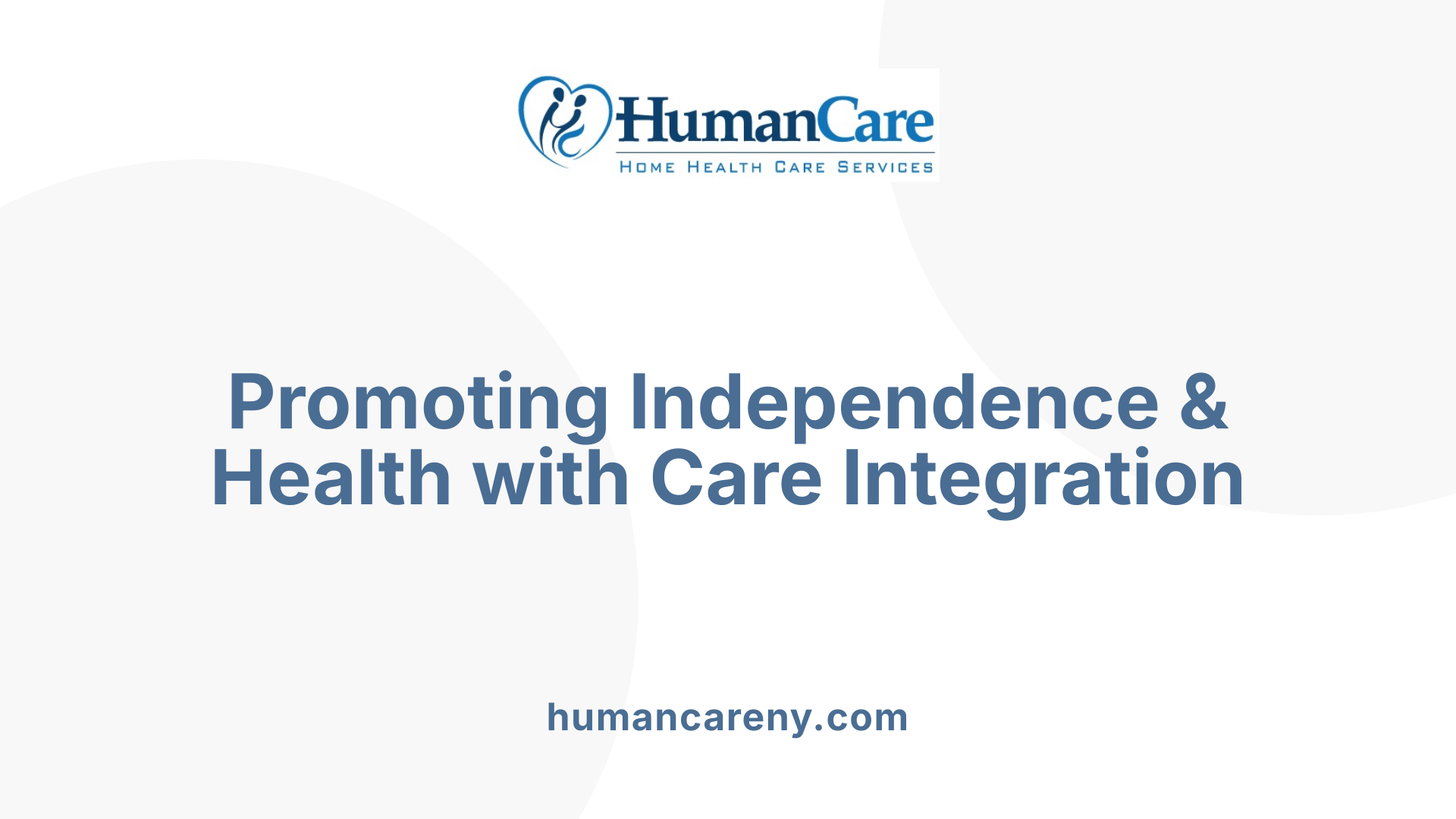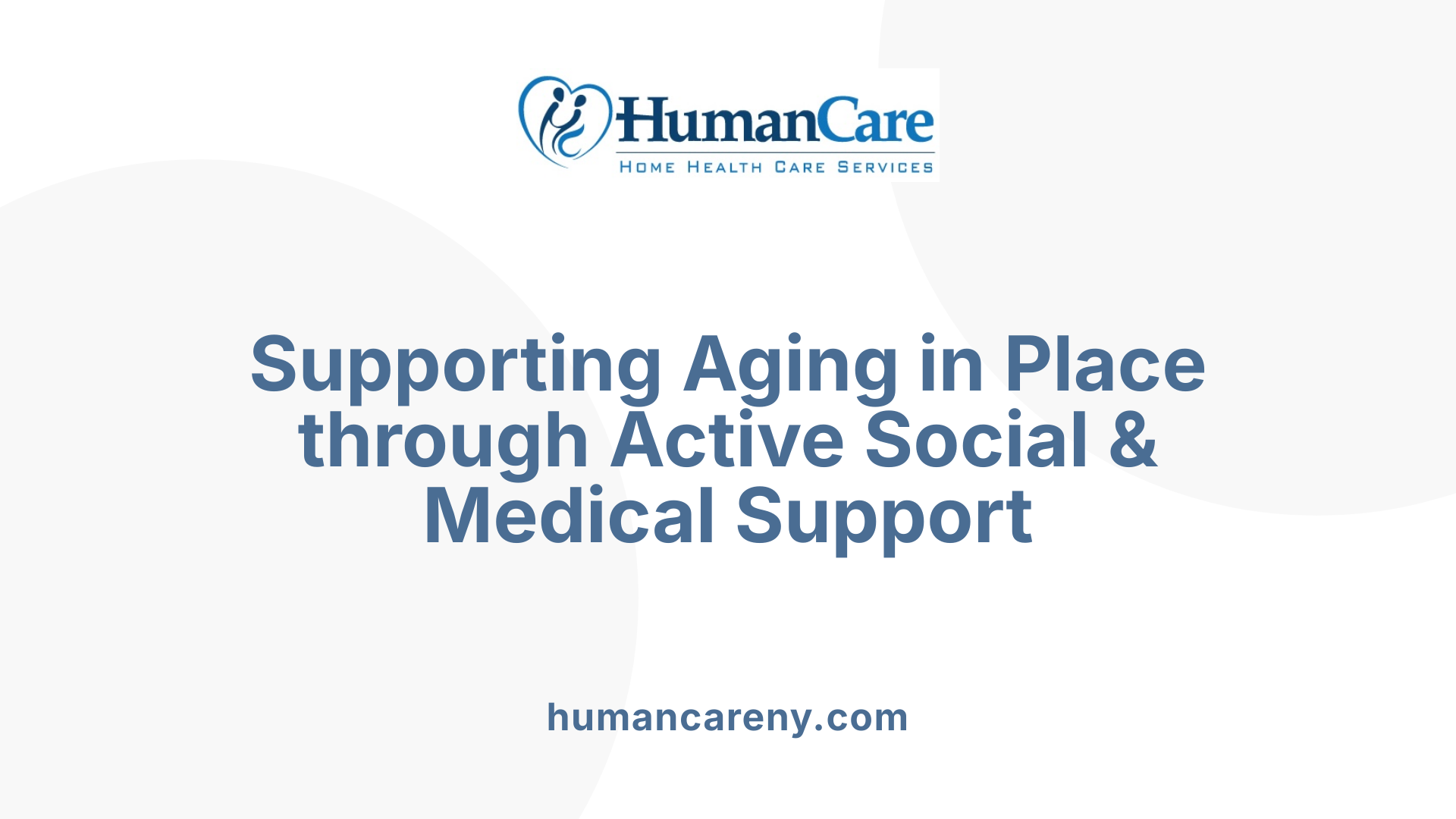A Holistic Approach to Senior Support
The landscape of eldercare has evolved significantly to meet the complex needs of aging populations. Combining adult day care with in-home support services offers a comprehensive strategy that enhances health, safety, independence, and quality of life for seniors and adults with disabilities. This integrated approach leverages the strengths of both environments, enabling personalized care, fostering social connections, and providing vital respite for caregivers. Understanding the benefits and considerations of these combined services can help families and care providers optimize support systems tailored to individual needs.
The Multifaceted Benefits of Combined Adult Day Care and In-Home Support

How does combining adult day care and in-home support enhance overall care options for older adults?
Integrating adult day care with in-home services creates a well-rounded approach to senior care that addresses the different needs of older adults. These combined services enable personalized care plans tailored to each individual's health, mobility, and social needs. While adult day centers offer structured social activities, health monitoring, and cognitive stimulation, in-home services provide personal assistance, ensuring safety and routine maintenance in familiar surroundings.
This collaboration promotes social engagement, improves mental health, and enhances physical well-being. It also allows for early detection of health issues and helps prevent hospitalizations. Importantly, such integration offers caregivers peace of mind, reducing their stress and workload. Overall, these combined services support seniors in maintaining independence, delaying long-term institutional care, and enjoying a better quality of life.
What evidence supports the benefits of using both adult day care and in-home support simultaneously?
Using both adult day care and in-home support offers a comprehensive approach that covers multiple aspects of seniors' well-being. Adult day programs provide a social environment, therapeutic activities, and health monitoring, which can improve physical functioning and mental alertness. In-home support helps seniors with daily tasks like bathing, dressing, and meal preparation, allowing them to stay comfortable and safe in their homes.
Research shows that combining these services results in better health outcomes, including fewer hospital visits and longer retention of independence. It also reduces caregiver stress by offering respite, allowing caregivers to recharge emotionally and physically. This synergy enhances overall health management, delays the need for long-term institutionalization, and creates a supportive network that promotes seniors' dignity and autonomy.
What are the benefits of combining adult day care and in-home services for caregivers?
Caregivers benefit significantly from the integration of adult day care and in-home support. These services provide essential respite, giving caregivers time for self-care, work, or personal activities. The availability of health monitoring and therapeutic support ensures that their loved ones' medical and social needs are met, reducing anxiety about safety and health.
Support programs often include counseling, support groups, and resource referrals, which help caregivers cope with stress and emotional strain. By sharing responsibilities with professional providers, caregivers experience less burnout and improved mental health. Overall, combining these services fosters a more balanced caregiving experience, improving the well-being of both caregivers and their loved ones.
How does the combination of adult day services impact socialization and delay institutionalization?
Participation in adult day services significantly enhances socialization by providing daily opportunities for interaction, companionship, and community engagement. These positive social environments help reduce feelings of loneliness and depression, especially for individuals with cognitive impairments like dementia.
Empirical research indicates that seniors who regularly attend adult day programs tend to stay longer in their homes and community settings, delaying the need for nursing home admission. The structured activities and health monitoring offered in these settings support physical and mental health, thereby maintaining functional abilities.
Studies utilizing survival analysis and Cox regression models have demonstrated that increased attendance and longer duration of participation are associated with a reduction in the time to institutionalization. In summary, combined services foster social bonds and support aging in place, offering both emotional comfort and physical health benefits.
Supporting Independence and Health Through Integrated Services

How do integrated adult day care and in-home services support health, safety, and independence?
Combining adult day care and in-home services creates a comprehensive safety net for seniors and adults with disabilities. Adult day programs offer structured supervision, therapeutic activities, and personal care, all overseen by licensed professionals, which help reduce risks like falls, social isolation, and health deterioration.
At the same time, in-home services such as personal assistance, medication management, and environmental modifications enable individuals to perform daily activities safely within their familiar surroundings. This personalized support addresses specific needs, reduces the chance of accidents, and promotes ongoing health.
Respite care options allow caregivers to take essential breaks without compromising care quality, ensuring that the individual’s safety and emotional well-being remain priorities. The synergy between these services supports longer-term independence by maintaining the individual’s health and social engagement.
Overall, this integrated approach fosters a balanced environment that enhances quality of life, delaying the need for more restrictive institutional care while empowering individuals to live with dignity and autonomy.
Enhancing Quality of Life and Supporting Delayed Institutionalization

How does adult day care support disease management and chronic health conditions?
Adult day care centers play a crucial role in helping seniors manage chronic illnesses and health issues. They offer health monitoring, medication management, and therapy services delivered by licensed professionals. Regular health oversight helps detect potential problems early, reducing hospital visits and complications.
Staff trained in medical and therapeutic disciplines assist participants with activities of daily living, such as feeding, mobility, and personal hygiene. This ongoing support promotes better health outcomes and helps maintain the participant’s independence longer.
On-site nursing and disease-specific programs, like those for dementia or respiratory problems, are tailored to meet individual health needs. These services create a structured environment that nurtures medical stability, emphasizes preventive care, and fosters medical adherence.
What types of activities offer cognitive stimulation and therapeutic benefits?
Engagement in therapeutic activities is central to adult day care programs. These activities include art therapy, music sessions, exercise classes, brain-stimulating games, and physical therapies.
For individuals with cognitive impairments, such as Alzheimer’s or other dementias, structured activities help slow cognitive decline, improve mood, and reduce behavioral issues.
Participation in such stimulating activities encourages mental agility, enhances motor skills, and nurtures social interaction, which collectively improve overall well-being.
How does community integration and person-centered care contribute to better outcomes?
Adult day services emphasize person-centered care, which tailors activities and services to each participant’s strengths, interests, and dislikes. This individualized approach ensures that seniors engage in meaningful activities that resonate with their preferences.
Programs foster community integration by enabling participants to maintain social connections, reinvigorate their sense of purpose, and actively participate in familiar environments outside their homes.
The inclusion of community trips, outings, and recreational activities further enhances social bonds, helping seniors feel valued and connected to their surroundings.
How does combining adult day care with in-home services maximize benefits?
Integrating adult day care with in-home support creates a comprehensive care plan that addresses both health and social needs effectively. This hybrid approach offers several advantages:
| Benefit | Description | Impact |
|---|---|---|
| Social engagement | Adults participate in structured social activities | Reduces loneliness and cognitive decline |
| Health monitoring | Continuous medical oversight | Prevents emergencies and hospitalizations |
| Respite for caregivers | Caregivers take breaks from caregiving duties | Relieves stress, prevents burnout |
| Tailored support | Combining services based on individual needs | Promotes independence and dignity |
Research indicates that such combined strategies best support older adults in staying healthier longer while easing caregiver burden.
Why is this approach advantageous for delaying institutional care?
Adult day care programs serve as vital alternatives to long-term residential facilities. They enable seniors to remain in familiar environments, maintain social routines, and participate in meaningful activities.
With regular health supervision, cognitive stimulation, and emotional support, these programs help slow the progression of chronic diseases and mental decline.
Delaying the need for institutionalization not only boosts quality of life but also reduces healthcare costs. The median monthly cost of adult day services is significantly lower than in-home health care or assisted living.
By providing both medical and social support, adult day care centers help families feel confident in managing health concerns while preserving independence.
What are the outcomes and benefits observed?
Participation enhances seniors’ emotional well-being, physical health, and cognitive function. It reduces agitation, depression, and the use of psychoactive medications.
Caregiver respite improves mental health, decreases stress, and strengthens family relationships.
Communities benefit from increased social cohesion, lower rates of hospitalization, and delayed institutional placement for seniors.
Overall, adult day services create a balanced approach to aging, emphasizing dignity, engagement, and health management.
| Outcomes | Benefits | Supporting Evidence |
|---|---|---|
| Improved social interaction | Less loneliness | Regular engagement in group activities |
| Better health management | Fewer hospital visits | Continuous health monitoring |
| Cognitive stability | Slowed decline | Therapeutic programs tailored to needs |
| Caregiver relief | Prevented burnout | Respite and support services |
| Delayed institutionalization | Maintained independence | Community-based participation |
Through these comprehensive services, seniors can enjoy enhanced quality of life while supporting families and healthcare systems.
How do these services evolve to meet changing needs?
Adult day services continuously adapt with evolving models. They incorporate new therapeutic techniques, expand health services, and enhance community involvement.
Partnerships with healthcare providers ensure seamless integration of medical care with social activities.
States and organizations are exploring funding options, including Medicaid and VA benefits, to make these programs accessible.
This adaptable approach ensures that adult day care remains a vital component of elder care, capable of addressing the diverse and changing needs of aging populations.
Conclusion: A Unified Path to Aging in Place
The integration of adult day care with in-home services offers a strategic approach to eldercare that addresses the broad spectrum of physical, emotional, and social needs of older adults and adults with disabilities. This combination fosters a supportive environment that prioritizes safety, promotes independence, and enhances overall quality of life. As the demand for personalized, community-based care continues to grow, understanding and implementing these integrated services can lead to more sustainable, effective, and compassionate eldercare solutions. Ultimately, embracing these complementary services ensures that seniors can age in place with dignity, support, and the vital social connections that underpin mental and physical well-being.
References
- Why In-Home Care May Be a Better Option Than Adult Day Care
- Adult Day Services Programs - Care Options
- Adult Day Care: A Valuable Resource for In-Home Senior Care
- Services for Older Adults Living at Home | National Institute on Aging
- Understanding the Benefits of Adult Day Care Options - 2nd Home
- Ultimate Guide to Adult Day Care Services - Westmont Living
- 5 Reasons to Use Adult Day Care
- Adult Day Care Benefits for Seniors and Caregivers
- Adult Day Emerges As New Potential Service Line For Home Care ...
- What Is Adult Day Care and How Can it Help Caregivers? - AARP



